An institution that nurtures creative explorers, not just achievers
In a tech-driven age of instant answers, Taylor’s University is training students to think critically and apply knowledge in innovative ways.
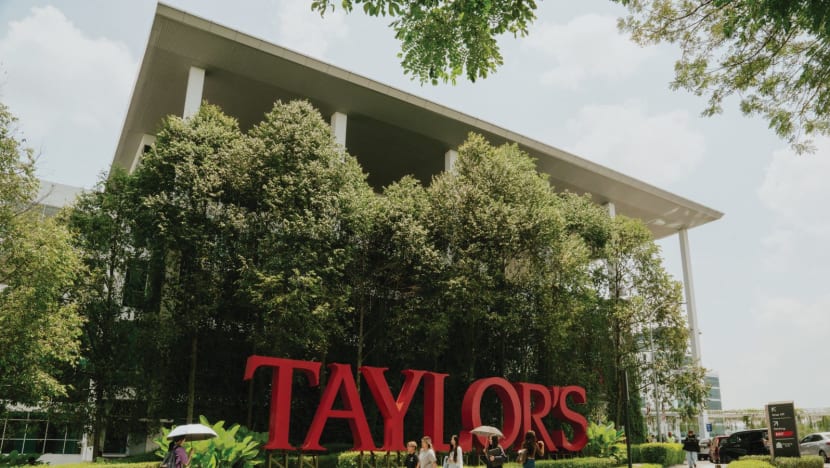
Taylor’s University is rolling out a 10-year strategy to become a top-tier, future-focused institution. Photos: Taylor’s University

This audio is generated by an AI tool.
As Taylor’s University continues to strengthen its standing in the QS World University Rankings, its vice-chancellor and president, Professor Barry Winn, is looking well beyond short-term gains. Core to his vision is a comprehensive 10-year plan aimed at transforming the Malaysian private university into a future-ready institution of global standing.
A key part of this transformation is a RM1.2 billion (S$364.8 million) investment to further develop the institution, including revitalising its lakeside campus in Subang Jaya. Planned upgrades include new sports facilities, state-of-the-art laboratories and student residences designed to meet the needs of its multicultural community.
Beyond infrastructure, the plan outlines strategic pillars to prepare Taylor’s students for a fast-paced, tech-driven world. These include a focus on transformative technologies such as artificial intelligence, as well as addressing global challenges like sustainability and an ageing population.
Prof Winn highlighted that the university’s focus is on nurturing students to become “creative explorers, not just achievers”.
“These days, you can pull out your phone and find answers instantly,” he said. “Our job is to help students think critically about challenges and apply knowledge in innovative ways – to create new ideas, not just recycle existing ones.”
Ranked the top private non-government-linked university in Southeast Asia, Taylor’s is currently placed at No 253 in the QS World University Rankings 2026, positioning it among the top 1 per cent of universities worldwide.
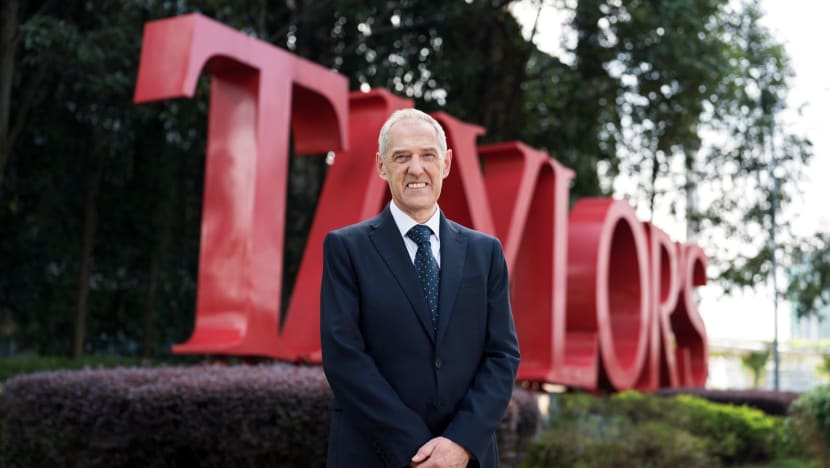
CHARTING NEW GROWTH
Prof Winn shared that Taylor’s growth in the years ahead will be driven by five strategic thrusts: delivering an exceptional student experience, advancing innovative teaching, producing impactful research, strengthening partnerships and pursuing quality-driven growth.
One example is its well-established medical school. In response to Malaysia’s ageing population, the university plans to introduce more allied health programmes, such as physiotherapy. “As the population ages, we’ll see more cases of strokes and dementia,” said Prof Winn. “We’ll need not just doctors, but also specialists like dietitians and advanced practice nurses to provide holistic care.”
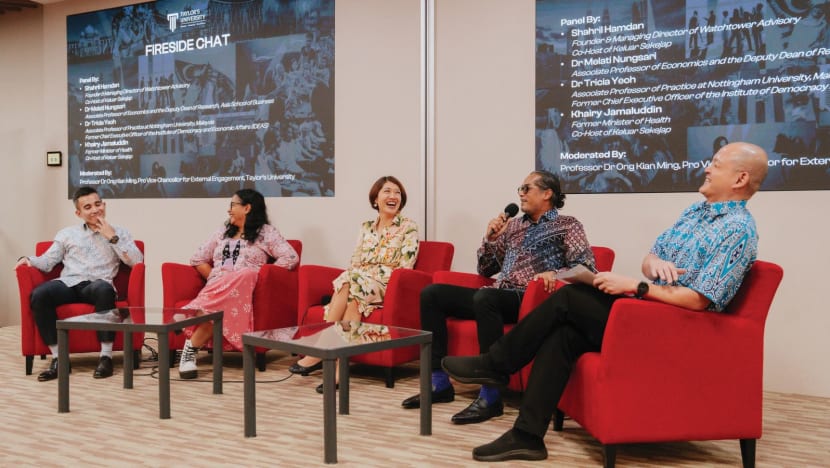
Taylor’s also operates 11 Impact Labs, where students collaborate with faculty, industry professionals and corporate partners to create solutions to real-world problems – all guided by the United Nations Sustainable Development Goals.
Since 2023, these labs have delivered 230 projects with 210 partners, tackling issues in areas such as sustainable tourism, clean energy and community well-being. Among them is Project BacaBaca, a literacy programme for underserved communities led by Ms Hema Letchamanan, senior lecturer at Taylor’s School of Education. Since 2021, the initiative has supported over 500 students across Malaysia and was awarded the 2024 Asia-Pacific SDG Initiative of the Year at the Triple E Awards.
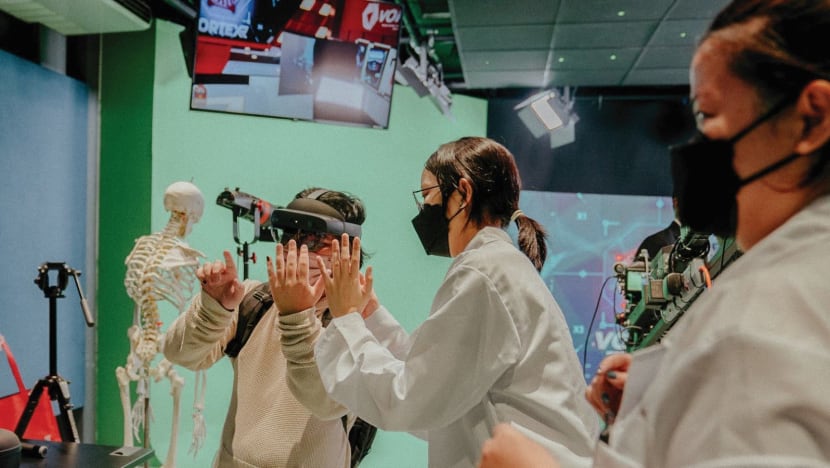
Another project, Ibu.Niaga – led by Professor Anindita Dasgupta of Taylor’s School of Liberal Arts and Sciences – provides women from marginalised communities with entrepreneurship training. To date, 110 women have completed the programme.
DRIVING MEANINGFUL IMPACT THROUGH COLLABORATION
To meet rising demand for research expertise, Prof Winn said Taylor’s is exploring the launch of more postgraduate programmes and is actively recruiting academics from around the world to teach them.
The university also aims to strengthen international collaborations to provide students with a truly global perspective. Prof Winn explained: “How small-and medium-size enterprises operate in Kuala Lumpur is very different from how they function in cities like Manchester or Boston. To truly understand international trade, you often need local partners who can help you grasp the unique business dynamics of each region. Many business owners are especially interested in Southeast Asia, and Taylor’s is pleased to support this mutual learning and exchange.”
He added: “We want to harness technology to offer joint courses that bring students from different regions together, enriching the learning experience across borders.”
PUTTING STUDENTS FIRST
To better equip its students for the workforce, Taylor’s is developing immersive avatar-based simulations that allow learners to practise real-world scenarios in a safe environment.
“Clinical psychology students, for instance, could interact with an avatar exhibiting a mental health disorder,” explained Prof Winn. “Or hospitality students might be placed at a virtual hotel reception. Our goal is to go beyond virtual reality – we want to be better than reality.”
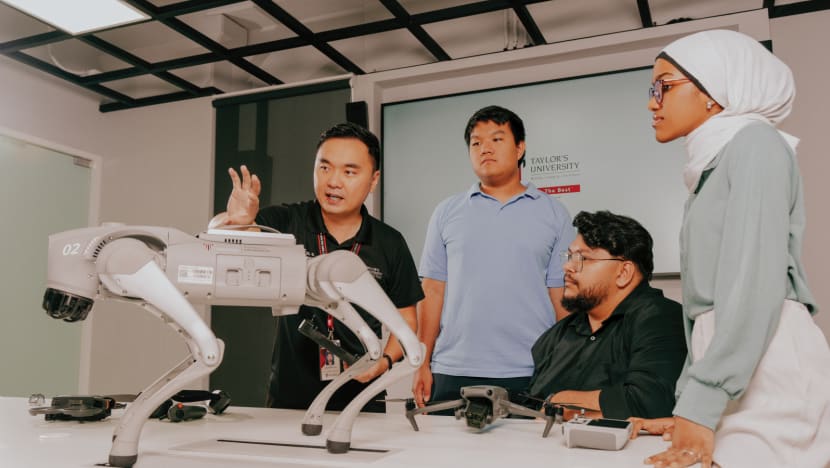
The university’s growing emphasis on research is also driven by its goal to serve students. “We want students to be taught by people who wrote the book, not just read it,” said Prof Winn. “Our research isn’t just about publishing more papers – it’s about creating a rich learning environment led by engaged, knowledgeable academics.”
Prof Winn said his proudest achievement thus far has been to improve staff engagement and giving educators a voice in shaping Taylor’s academic culture. This people-first philosophy is reflected in Taylor’s strong global rankings.
“If we do the right things, the rankings will follow,” Prof Winn said. “They provide external validation and inspire confidence among employers, students and parents. Ultimately, we want to be known as a university that puts students first and gives every student the chance to improve their lives.”
Discover the innovative offerings at Taylor’s University.













